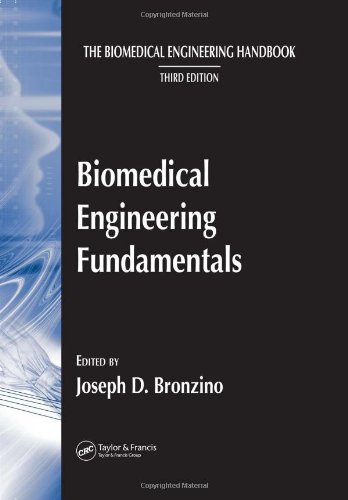Over the last century,medicine has come out of the ?black bag? and emerged as one of the most dynamic and advanced fields of development in science and technology. Today, biomedical engineering plays a critical role in patient diagnosis, care, and rehabilitation. As such, the field encompasses a wide range of disciplines, from biology and physiology to informatics and signal processing.
Reflecting the enormous growth and change in biomedical engineering during the infancy of the 21st century, The Biomedical Engineering Handbook enters its third edition as a set of three carefully focused and conveniently organized books. The first installment, Biomedical Engineering Fundamentals provides a concise survey of the major areas that constitute modern biomedical engineering. Beginning with an overview of physiology and physiological modeling, simulation, and control, the book explores bioelectric phenomena, biomaterials, biomechanics, rehabilitation and human performance engineering, and ethical issues. Preeminent experts from around the world share their expertise with many new and updated chapters representing state-of-the-art technologies and practices. A new section on neuroengineering rounds out the coverage.
With sharp focus and authoritative coverage, Biomedical Engineering Fundamentals is an ideal introduction for anyone new to the field, a convenient reference for seasoned professionals, and a valuable introductory textbook.






Reviews
There are no reviews yet.